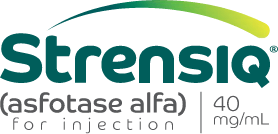
Sharon, hpp star
Frequently asked
Questions
Below, you’ll find answers to commonly asked questions about HPP, diagnosis, treatment, and more.
WHAT IS HYPOPHOSPHATASIA (HPP)?
Hypophosphatasia (HPP)
is a rare, inherited, lifelong condition that
impacts bones and other parts
of the
body. People with HPP have low
levels of
an enzyme called
alkaline
phosphatase (ALP) that
is naturally
present in the body and is necessary for bone creation and maintenance.
HOW CAN I
DESCRIBE HPP TO
OTHER PEOPLE?
Explaining HPP looks a little different for everyone. This features
HPP patients who share how they explain HPP to others.
WHAT PARTS OF THE BODY CAN HPP AFFECT?
HPP can affect a
person’s bones, muscles, joints, teeth, lungs, brain,
and kidneys.
ARE THERE DIFFERENT TYPES OF HPP?
Yes. According to the
National
Organization for Rare Disorders (NORD),
there are six major
clinical forms of HPP
based largely on
the
age that
symptoms first appear and
diagnosis. The
information
you will find on
our Facebook page and
website relates to three
types:
perinatal-onset
HPP,
infantile-onset HPP,
and juvenile-onset HPP.
HOW IS HPP DIAGNOSED?
A blood test administered by your healthcare provider will confirm whether you or your loved one has a low alkaline phosphatase (ALP) level based on age and sex. If at least one other clinical sign or symptom of HPP is present, such as joint and muscle pain, bone fractures, or fatigue, and a doctor has ruled out any other causes of low ALP, then a doctor may confirm an HPP diagnosis.
WHAT TYPE OF DOCTOR TREATS HPP?
Because HPP affects
different systems of
the body, doctors in
many different specialties may treat
HPP, such as geneticists, orthopedists,
endocrinologists, and
rheumatologists. Having a primary
care physician who
is knowledgeable
(or who becomes knowledgeable) about HPP is also
important. That way,
they can help coordinate care with doctors in multiple specialties who treat
HPP, as needed.
WHY IS
HYPOPHOSPHATASIA
AWARENESS
IMPORTANT?
The more people who know
about
HPP—patients, loved ones, and
healthcare
professionals—the
better. In this , HPP STARs share
their perspectives on why HPP awareness is important.
IS THERE A CURE FOR HPP?
Unfortunately, there is
currently no known
cure for HPP. However,
STRENSIQ®
(asfotase
alfa) helps
treat HPP by
replacing the
missing
alkaline phosphatase (ALP) enzyme and may be
an option for
you or your
loved one. More
details can
be found in
the Patient Prescribing
Information and
Important
Safety Information.
WHAT IS STRENSIQ® (asfotase alfa)?
STRENSIQ is a
prescription medicine that is indicated for the
treatment of
patients with perinatal/
infantile- and
juvenile-onset
hypophosphatasia (HPP). People with HPP have low levels of an
enzyme called alkaline phosphatase (ALP).
HOW DOES STRENSIQ WORK?
People with HPP have low
levels of
alkaline phosphatase (ALP),
which
can cause soft or weak
bones. STRENSIQ replaces
the
alkaline
phosphatase enzyme. When ALP is
replaced with
STRENSIQ,
phosphate is free
to bind with calcium and improve bone health.
More
details
can be
found in the
Patient Prescribing Information.
WHAT ARE THE
MOST COMMON SIDE
EFFECTS OF STRENSIQ?
The most common side
effects of STRENSIQ
include local skin
injection-site
reactions (including
red skin patches, bruising,
color
change, pain, itching, thinning,
swelling, pits, and bumps)
and
calcium buildup in your eyes
and kidneys.
Rotating the area on
the
body where you inject
STRENSIQ can help avoid irritation and
reactions at the
injection site. Talk to your doctor about
other
ways
to help manage these reactions.
Serious allergic
(hypersensitivity)
reactions
happened in some people who use STRENSIQ. Stop
STRENSIQ and
go to the nearest
hospital emergency room
away if you or your loved one have any of
the signs and
symptoms of
a serious
allergic reaction. The
Important Safety Information has a
complete list of
possible side effects.
CAN I TRAVEL WITH STRENSIQ?
When
traveling
with STRENSIQ,
make sure to keep STRENSIQ
stored
in its original packaging
at
36°F to 46°F (2
to 8°C) throughout
your trip and protect
STRENSIQ from
light. Before traveling,
gather
your injection supplies, ensure you have
enough ice packs for
the
journey, and check with
your destination to make sure there will be a
place to
refrigerate STRENSIQ when you get there. If
you
are
planning a trip, call OneSource™
at 1.888.765.4747 to learn more
about traveling with
STRENSIQ.
BEYOND MY
DOCTOR, ARE THERE
ADDITIONAL
RESOURCES
THAT
SUPPORT PEOPLE TAKING
STRENSIQ?
OneSource™ is a complimentary, personalized
patient support
program
offered by Alexion.
It
features a dedicated team with expertise in rare
disorders
and the healthcare system.
After enrolling,
OneSource™ can
answer
questions about
hypophosphatasia and treatment
with
STRENSIQ, send you
useful educational tools and resources, provide
treatment
support, and connect you with others living
with hypophosphatasia.
DOES
ONESOURCE™
HELP WITH
FUNDING FOR
TREATMENT
WITH
STRENSIQ?
OneSource™ can help with CoPay assistance for
eligible
patients.
Government-insured
patients
are not eligible for CoPay assistance.
Call
OneSource™
at 1.888.765.4747 for
information
about financial
assistance options that may be
available to you. If
you are
experiencing access challenges,
OneSource™
can
provide
information
to help you maintain
continuous
care. Some
people
may not be
eligible for all services.
HOW DID OTHERS
DECIDE TO MOVE
FORWARD
WITH
STRENSIQ?
Choosing to treat with
STRENSIQ is a
decision that takes consideration
and
input from
your doctor. In this ,
hear why HPP STARs made the decision to treat with
STRENSIQ.
Or, if you
want to speak with an HPP STAR directly,
sign up
for the Peer Connects program.

HPP PATIENT SUPPORT
Enroll in OneSource™ to get personalized patient support from Alexion at 1.888.765.4747.
Learn More about OneSource™

AT ONESOURCE, WE ARE BY YOUR SIDE THROUGHOUT YOUR JOURNEY, FROM LEARNING ABOUT YOUR CONDITION TO HELPING YOU ACCESS THE THERAPY YOU'VE BEEN PRESCRIBED. PATIENTS' NEEDS ARE OUR TOP PRIORITY.
–Deana,
ONESOURCE CASE MANAGER


What is the most important information I should know about STRENSIQ® (asfotase alfa)?
STRENSIQ may cause serious side effects, including severe allergic (hypersensitivity) reactions. Allergic reactions are common with STRENSIQ treatment and can be severe and life-threatening. Severe allergic reactions have happened in some people within minutes after receiving STRENSIQ and more than 1 year after starting treatment with STRENSIQ. Stop using STRENSIQ and go to the nearest hospital emergency room right away if you or your loved one get any of the following signs and symptoms of a serious allergic reaction:
- difficulty breathing
- choking sensation
- swelling of your eyes, lips, or tongue
- dizziness
- nausea or vomiting
- fever
- headache
- sweating
- feeling irritable
- chills
- skin redness
- skin rash or hives
-
itching or numbness of the
tongue, lips, cheeks, or gums
What are the other possible side effects of STRENSIQ?
STRENSIQ may cause other serious side effects, including:
- skin thickening or pits at the injection site (lipodystrophy). Lipodystrophy is common and has happened after several months in people treated with STRENSIQ.
- calcium build-up in the eyes and kidneys. People with HPP are at increased risk for developing calcium build-up in the body. Calcium build-up in the eyes and kidneys has happened and is a common side effect of STRENSIQ. Calcium build-up in the eyes and kidneys may also happen in people with HPP who are not treated with STRENSIQ. Your healthcare provider should check your eyes and kidneys before and during treatment with STRENSIQ.
- immune-related effects. You may develop antibodies during treatment that may decrease how well STRENSIQ works. Tell your healthcare provider right away if you get worsening symptoms of HPP including: difficulty breathing, difficulty walking, feeling tired, bone pain, stiff joints, or loss of appetite.
The most common side effects of STRENSIQ include local skin injection site reactions such as skin redness, bruising, color change, pain, itching, hardening of the skin (induration), swelling, and bumps. These are not all the possible side effects of STRENSIQ. For more information, ask your healthcare provider or pharmacist. Call your healthcare provider for medical advice about side effects.
You will begin receiving STRENSIQ under the supervision of a healthcare provider. Tell your healthcare provider about all your medical conditions, including if
you:
- have had an allergic reaction to STRENSIQ.
- are pregnant or plan to become pregnant. It is not known if STRENSIQ will harm your unborn baby.
- are breastfeeding or plan to breastfeed. It is not known if STRENSIQ passes into your breast milk. Talk to your healthcare provider about the best way to feed your baby if you use STRENSIQ.
Tell your healthcare provider about all the
medicines you
take,
including
prescription and over-the-counter medicines,
vitamins, and herbal
supplements.
There is a registry for people who use STRENSIQ. The purpose of this registry is to collect information about HPP and about what happens when you use STRENSIQ for a long time. For more information about this registry, talk with your healthcare provider or go to www.hppregistry.com.
To report SUSPECTED SIDE EFFECTS, contact Alexion
Pharmaceuticals, Inc. at
1-844-259-6783 or FDA at
1-800-FDA-1088
or
www.fda.gov/
medwatch.
INDICATION
What is STRENSIQ?
STRENSIQ® (asfotase alfa) is a prescription medicine
used to
treat people
with perinatal, infantile, and juvenile onset
hypophosphatasia (HPP).
Please see the full Prescribing Information and Patient Information, including Boxed WARNING regarding severe allergic (hypersensitivity) reaction.
What is the most important information I should know about STRENSIQ® (asfotase alfa)?
STRENSIQ may cause serious side effects, including severe allergic (hypersensitivity) reactions. Allergic reactions are common with STRENSIQ treatment and can be severe and life-threatening. Severe allergic reactions have happened in some people within minutes after receiving STRENSIQ and more than 1 year after starting treatment with STRENSIQ. Stop using STRENSIQ and go to the nearest hospital emergency room right away if you or your loved one get any of the following signs and symptoms of a serious allergic reaction:
- difficulty breathing
- choking sensation
- swelling of your eyes, lips, or tongue
- dizziness
- nausea or vomiting
- fever
- headache
- sweating
- feeling irritable
- chills
- skin redness
- skin rash or hives
-
itching or numbness of the
tongue, lips, cheeks, or gums
What are the other possible side effects of STRENSIQ?
STRENSIQ may cause other serious side effects, including:
- skin thickening or pits at the injection site (lipodystrophy). Lipodystrophy is common and has happened after several months in people treated with STRENSIQ.
- calcium build-up in the eyes and kidneys. People with HPP are at increased risk for developing calcium build-up in the body. Calcium build-up in the eyes and kidneys has happened and is a common side effect of STRENSIQ. Calcium build-up in the eyes and kidneys may also happen in people with HPP who are not treated with STRENSIQ. Your healthcare provider should check your eyes and kidneys before and during treatment with STRENSIQ.
- immune-related effects. You may develop antibodies during treatment that may decrease how well STRENSIQ works. Tell your healthcare provider right away if you get worsening symptoms of HPP including: difficulty breathing, difficulty walking, feeling tired, bone pain, stiff joints, or loss of appetite.
The most common side effects of STRENSIQ include local skin injection site reactions such as skin redness, bruising, color change, pain, itching, hardening of the skin (induration), swelling, and bumps. These are not all the possible side effects of STRENSIQ. For more information, ask your healthcare provider or pharmacist. Call your healthcare provider for medical advice about side effects.
You will begin receiving STRENSIQ under the supervision of a healthcare provider. Tell your healthcare provider about all your medical conditions, including if
you:
- have had an allergic reaction to STRENSIQ.
- are pregnant or plan to become pregnant. It is not known if STRENSIQ will harm your unborn baby.
- are breastfeeding or plan to breastfeed. It is not known if STRENSIQ passes into your breast milk. Talk to your healthcare provider about the best way to feed your baby if you use STRENSIQ.
Tell your healthcare provider about all the
medicines you
take,
including
prescription and over-the-counter medicines,
vitamins, and herbal
supplements.
There is a registry for people who use STRENSIQ. The purpose of this registry is to collect information about HPP and about what happens when you use STRENSIQ for a long time. For more information about this registry, talk with your healthcare provider or go to www.hppregistry.com.
To report SUSPECTED SIDE EFFECTS, contact Alexion
Pharmaceuticals, Inc. at
1-844-259-6783 or FDA at
1-800-FDA-1088
or
www.fda.gov/
medwatch.
INDICATION
What is STRENSIQ?
STRENSIQ® (asfotase alfa) is a prescription medicine
used to
treat people
with perinatal, infantile, and juvenile onset
hypophosphatasia (HPP).
Please see the full Prescribing Information and Patient Information, including Boxed WARNING regarding severe allergic (hypersensitivity) reaction.


